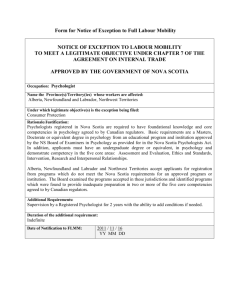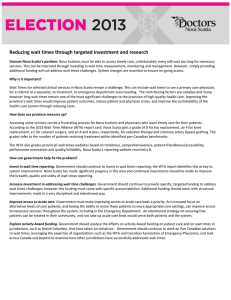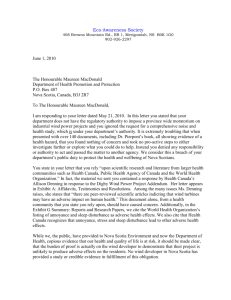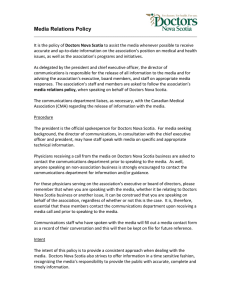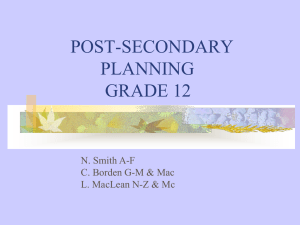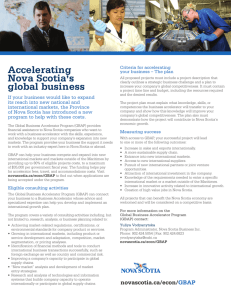SMUSA and anssa 2012-13
advertisement
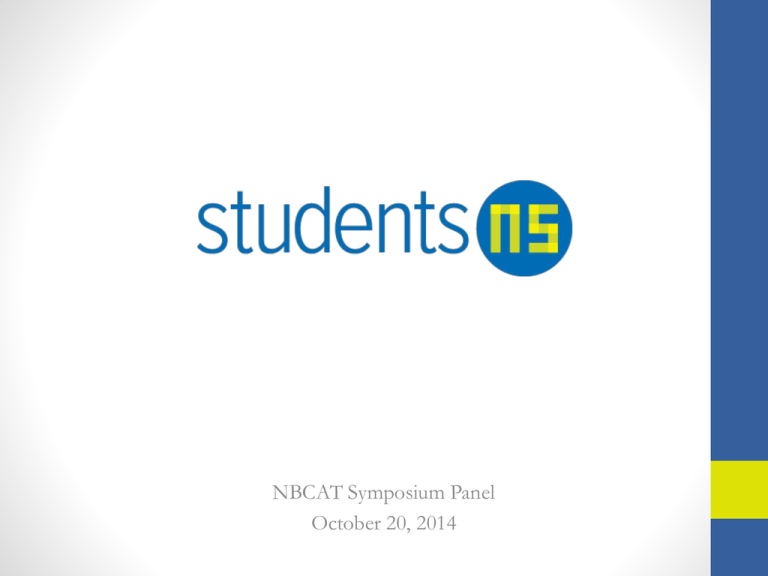
NBCAT Symposium Panel October 20, 2014 Who are we? • Advocacy organization • Seven member-student associations • 37,794 students, 86% of all university students in Nova Scotia • Local, out-of-province and international, young and mature, undergraduate, graduate, professional and community college students! What do we do? • We represent Nova Scotia’s students by: • Researching the challenges they face • Finding solutions to those challenges • Creating the space for solutions to happen • We do this through: • Communicating with students • Advocating to the Provincial Government • Policy position papers • Campaigns Our values • Accessibility: Every qualified Nova Scotia student who wishes to pursue postsecondary education should be able to do so, irrespective of their financial situation, socioeconomic or ethnic background, physical, psychological or mental ability, age, sexual orientation, geographic location, or any other factor exogenous to qualification. • Affordability: The cost of post-secondary education in Nova Scotia should not cause undue hardship upon any student, restrict their ability to pursue the career path they choose, or make them financially unable to live in the community of their choice. • Quality: Policies, programs, and services in post-secondary education should meet student expectations to help prepare them for lifelong success, including in their citizenship, careers, and personal wellbeing. • Student Voice: Nova Scotia students must be empowered to actively participate in setting their post-secondary system’s direction via engagement through their representative student bodies, within the post-secondary institutions themselves, and through the broader democratic process. Context • Whether we like it or not, the funding situation for universities and colleges looks to be tight for the foreseeable future • Universities are going to become much more international, colleges will also be forced to change • Nova Scotians expect more from their PSE institutions, especially universities • Better quality of education • More services in a range of different areas • More economic, social and cultural impact Three statements • Intentionally challenging and controversial • Will frame conversation on credit transfer and prior learning assessment and recognition • Recognize that progress is being made in many of these areas by many different institutions Universities principally pursue their own objectives and those of their employees, students’ and the public interest secondly. Post-secondary system is an imperfect market, notably because almost no one has enough information to assess quality Universities are completely outdated in their fundamental viewpoint on how, and even why, people learn So, what? • Resistance to PLAR and credit transfer for financial reasons • Inability to conduct PLAR and credit transfer because it’s not entirely clear what students in the courses are even supposed to learn • Resistance to recognizing different ways in which people learn, either in different classrooms (even of the same type) or in entirely different environments Student experiences • No credit transfer or PLAR • Fees for assessment for credit transfer with no guarantee that credits will be recognized (Acadia and CBU) • At times, lengthy and frustrating process (as long as eight weeks) • Variable recognition of credits between different departments • Major interest in credit transfer especially among NSCC students • Importance of credit recognition from university to college, increasingly Recommendations • Focus on Learning Outcomes • Strengthen Quality Assurance, notably through the MPHEC • Create a database for courses and equivalences across the Maritimes
